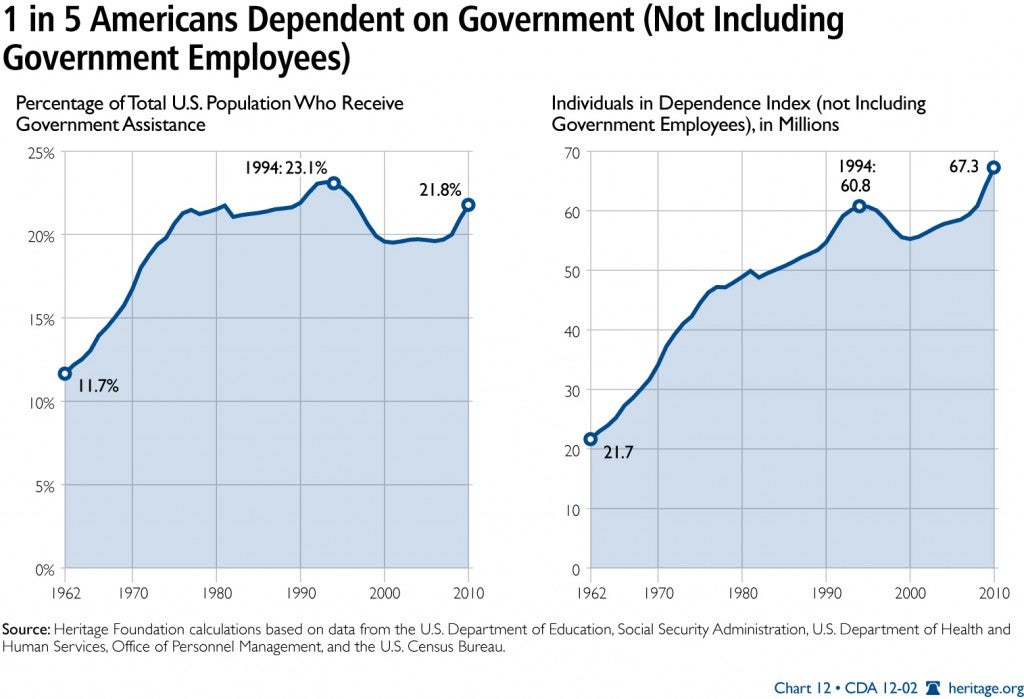The number of Americans dependent on the federal government has exploded over the past five years, reaching a record 67.3 million people, according to Heritage’s annual Index of Dependence on Government. That means 1 in 5 Americans (21.8 percent) today receive some level of assistance from the federal government.
This week’s chart — one of 15 featured in this year’s report — depicts the percentage of the U.S. population who receive government assistance and the total number of individuals who are dependent on the federal government.
Fifty years ago, before President Lyndon Johnson created the Great Society programs, some 21.7 million people (or 11.7 percent of the population) received assistance through government programs that existed at the time. The number increased sharply in the 1960s and 1970s before falling in the 1990s. Recently, however, it has skyrocketed.
“Americans should be concerned about this seemingly relentless upward march in Index scores,” wrote Heritage authors Bill Beach and Patrick Tyrrell. “Dependence on the federal government for life’s many challenges strips civil society of its historical and necessary role in providing aid and renewal through the intimate relationships of family, community, and local institutions and local governments.”
Reversing the trend won’t be easy, but there are solutions. Heritage’s plan, Saving the American Dream, reforms government programs in a way that would significantly reduce the growth of dependence on government.

